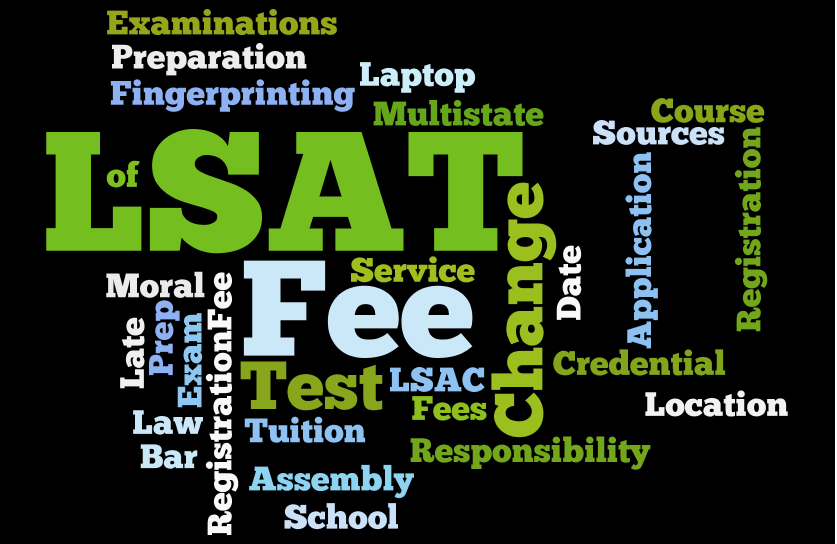
The core value of the legal profession is justice, but, the realities of the legal profession are often driven by money. The profession’s heavy focus on ensuring that money and money-making resources are transferred from one group to the next serves as the antagonist of justice at almost every level.
The antagonism begins with law school. Entering law students quickly become acquainted with the idea that it is counter-cultural to commit to social justice and public interest work. They receive the not-so-subtle hints that they would do better to follow the money into private practice. Since others have written about the irony of the pursuit of justice being hampered by the gains of money, I will leave the matter here.
As someone who was born in a poor country, grew up in a working-class community in the United States, and recently graduated from law school–my aspiration since the age of five–I want to instead highlight how the appetite for money in the legal profession not only undercuts the profession’s justice ideals, but also limits the poor’s access to the legal profession. This is because, even though people of less advantaged circumstances are more likely to commit to social justice work and advocate for transformative change, for them, the road to becoming a lawyer is overlain with the obstacle of never having enough money to pay for everything.
Law school admissions tests and applications
The financial obstacles for the poor begin with paying for the Law School Admissions Test (LSAT), a test used in admissions decisions. The basic fee is $160, but doesn’t include potential “auxiliary” fees for late registration, or changes to the test location and date. The Law School Admissions Council (LSAC), which administers the LSAT, also charges students to send applicant results to law schools.
Preparing for the LSAT increases applicants’ potential law school admission costs. Prep courses, such as Kaplan or Princeton Review, cost upwards of $2,500, or $800 for online courses. The actual law school application costs between $40 and $100 per school, depending on the school’s rank.
Law school tuition, expenses
The costs of law school can make you second guess going, send you scrambling for financial aid, or cause you to give up your dream as something unobtainable. I hyperventilated, but kept moving forward.
Public legal education increased fivefold since 1985; private schools increased twofold in the same period. At the top 20 law schools, tuition averages $45,569 annually. A student will pay at least $100,000 to attend any of the top 50 law schools.
There are also additional hidden costs for networking–a vital professional need, business attire, conference expenses, and other personal expenses. After all these expenses, some students may not even have enough money to travel home for the holidays.
Enormous debt piles on after the first two years of law school, but poor students may still need to borrow more money for the bar exam and preparation. Many law schools do not adjust cost of attendance in the third year to include these and other costs, plus room and board during the study period. Bar exam registration and prep costs varies by state, but are particularly steep in the bigger legal markets of California and New York.

Poor law students face additional burden
Most everyone seeking a legal education share these financial obstacles with difficulty. But, what is difficult for most is nearly insurmountable for the poor. There are some waivers and scholarships available, but even so, for poor students with little to no financial cushion, it is increasingly hard to get by. Many, even those who perform better than their advantaged peers, dropout out due to being unable to cope with the costs.
At the undergraduate level, the cost of higher education results in major inequalities, in both educational obtainment and status of universities students attend. Advantage students attend better schools and are more likely to obtain higher education than disadvantaged students. Nearly 80 percent of students born into the top-income quartile obtain bachelor’s degrees compared to just 11 percent of low-income students, according to Forbes. This inequality is magnified at law and graduate schools, especially at elite universities. The majority of first year law students at Harvard and Yale Law schools come from the top ten percent of the socioeconomic income ladder, while less than 5 percent come from the bottom half.
Further, the rising costs of law school, and higher education generally, inhibits student diversity and excludes perspectives in the classroom. Rising costs at every step undermines access to equitable education experiences for the poor.
Professional Legal Recruitment
The residual effects of money limiting access to elite law schools trickle into the recruiting and hiring process. Law firms heavily recruit and hire from elite law schools. Preferring elite schools may result in acquiring lawyers who are more familiar and connected to the corporate and business world, but only to the detriment of valuable perspective.
In the legal profession, legal advocacy is not limited to arguing a client’s position. Legal advocacy is equally, if not more so, about effectively countering an opponent’s arguments. In employment law, for example, a lawyer may need to argue on behalf of a wealthy business owner or corporation, but also address the demands, complaints, or allegations of the workers, who are typically poorer. Thus, a legal practice void of both the perspective of the wealthy and the poor will likely provide less effective advocacy than one enriched by both perspectives.
At a time when employment opportunities after law school are increasingly limited, there must be a halt to the money-centricity permeating the legal profession and the schools that provide access to the profession. The money-centricity makes it harder than necessary for disadvantaged individuals to actualize their dreams of becoming lawyers, but it also undermines the ideal of justice and creates a legal profession that bolsters inequality.
Syreeta Tyrell is a research assistant for Prof. john a. powell, director of the Haas Institute. She is a 2014 graduate of UC Berkeley School of Law.
The ideas expressed on the Haas Institute blog are not necessarily those of UC Berkeley or the Division of Equity & Inclusion, where the Haas Institute website is hosted. They are not official and not of one mind. Thoughts here are those of individual authors. We are committed to academic freedom, free speech and civil liberties.

